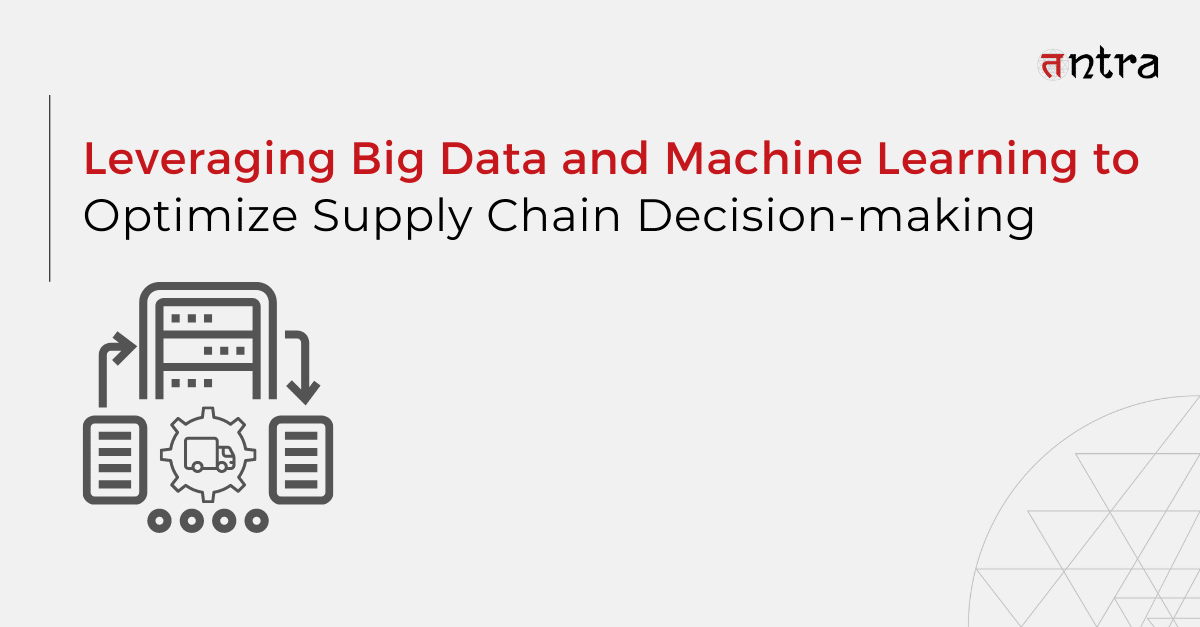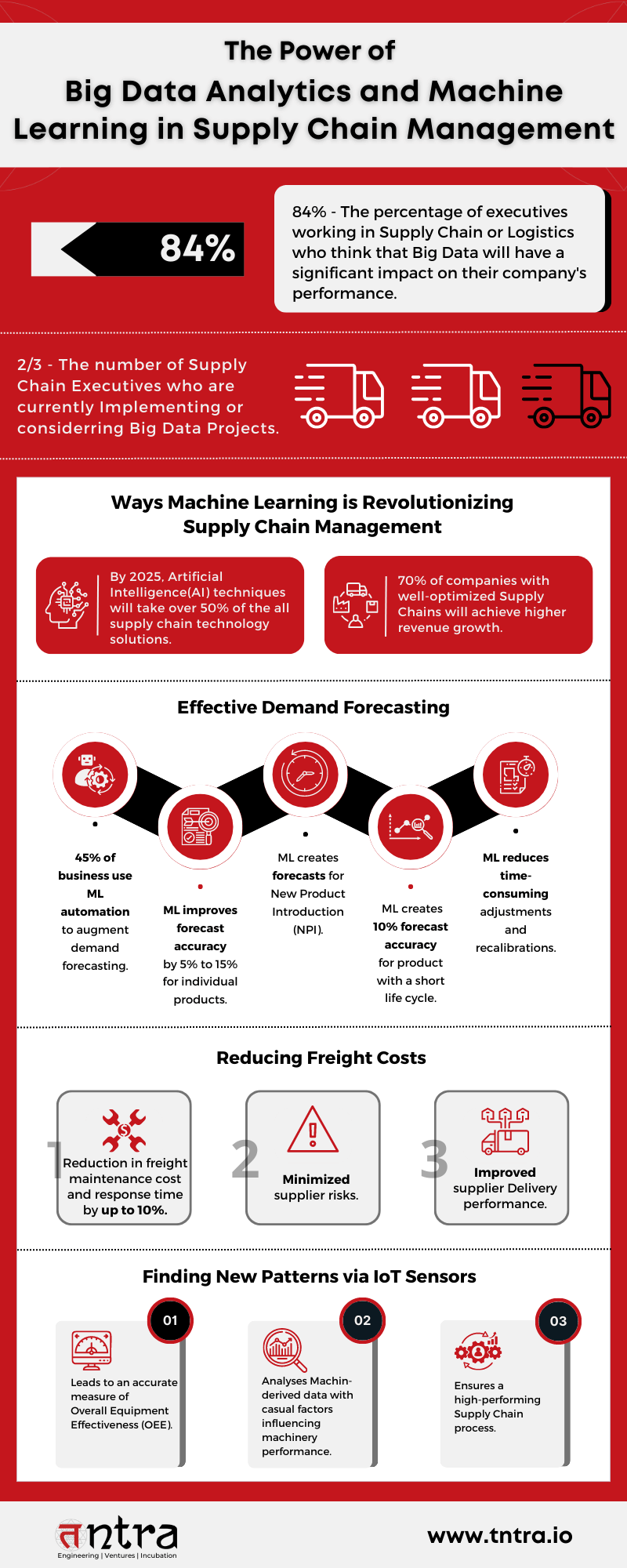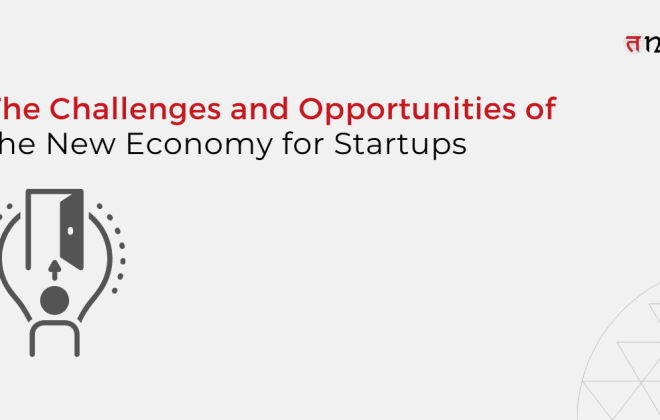
Leveraging Big Data and Machine Learning to Optimize Supply Chain Decision-Making
Table of Contents
ToggleIn integration with machine learning tools and platforms, Big Data analytics in logistics and supply chain management can potentially transform your business. With capabilities to support you in efficient predictive analytics, reading consumer behavior, targeted strategies for efficient last-mile delivery, and more, machine learning in supply chain management gives a competitive edge in the data-driven economy.
DHL is a well-known pioneer in global logistics, offering quick and dependable shipping services everywhere. DHL links people and businesses worldwide and has a solid reputation for efficient delivery services. They excel at last-mile delivery, using cutting-edge technology to streamline routes, monitor shipments in real-time, and give transparent delivery updates, improving the client experience.
The last mile delivery can be expensive, frequently costing more than 50% of the overall cost of packet delivery. DHL utilizes the potential of Big Data technology to streamline this process. DHL gathers and analyzes massive amounts of logistics data in real time through Machine Learning in supply chain management, enabling effective last-mile delivery.
In 2010, DHL launched the Smart Truck program, which uses Big Data technologies at its core. Before the truck’s departure, the route planning system chooses the best shipment order and route by examining data gathered from roadways and GPS systems. Automatic route modifications can be made based on the most recent orders, traffic situations, weather, and environment using real-time data from telematics databases. As a result of avoiding traffic jams, the Smart Truck travels 15% fewer miles, significantly lowering fuel consumption and CO2 emissions.
In addition to the Smart Truck, DHL introduced MyWay, a crowdsourcing platform for package delivery, in 2013. MyWay connects people who are prepared to transport packages on their regular routes with shippers needing flexible last-mile delivery, much like the sharing economy business model of Uber. MyWay operates through a mobile application and uses Big Data technology such as complicated event processing and geo-correlation. A cost-effective and practical solution for last-mile delivery is made possible by crowd affiliates, who can publish their present location and accept assigned delivery tasks.
By harnessing the power of Big Data, DHL optimizes its last-mile delivery operations, ensuring better customer service, cost-effectiveness, and environmental sustainability. The utilization of Machine Learning (ML) in supply chain management and the application of Big Data in logistics continue to revolutionize the way DHL and other logistics providers operate in the modern world.
Source: Harvard
The Power of Big Data Analytics and Machine Learning in Supply Chain Management
Every day, approximately 2.5 quintillion bytes of data are produced. As a result, the value of the global Big Data and Analytics market is $274 billion.
By 2027, Research & Markets projects that more than $7 billion will have been spent globally on Big Data in supply chain management. Big Data analytics have become more popular due to the COVID-19 outbreak, which revealed substantial supply chain disruptions. These cutting-edge analytics solutions are increasingly being used by logistics and supply chain management (SCM) businesses to efficiently manage their inventory and react quickly to changes in demand.

Using Artificial Intelligence (AI) and ML in Big Data analytics is essential for lowering forecast error rates. With the help of these cutting-edge technologies, forecasting is more successful across various industries since it can now produce precise predictions and data-driven insights. According to a McKinsey analysis, supply chain implementations of AI and ML can cut forecast mistakes by up to 50%.
Robust Supply Chain Management is the need of the hour. Therefore, applying Big Data analytics in logistics and supply chain management is becoming a priority for organizations globally. Given that, as per a report, the Supply Chain Big Data Analytics market is anticipated to register a CAGR of approximately 17.31%.
If you are a business, big or small, SCM solutions and data analytics solutions should be a priority. Get in touch with software product engineering services like Tntra to get your own tailored analytics solution.
Transforming Supply Chain Efficiency with Big Data Analytics and Machine Learning
An unprecedented data explosion has occurred due to the continual increase in data generation from smart devices, AI systems, and the internet. However, when the business fails to make the best use of this data, the importance of big data analytics stands clear. Organizations can discover hidden patterns, trends, and correlations within massive datasets by utilizing big data and incorporating machine learning into supply chain processes.
This gives them incredible speed, efficiency, and a competitive edge, enabling adaptability in today’s dynamic marketplace. In addition, given the reliance of the supply chain Industry on data for its operations, machine learning, and big data analytics have many uses.
Let us look at some of the use cases of Machine Learning in Supply Chain as well as Big data analytics –
- Predictive Analytics
- In supply chain management, accurate demand forecasting has various benefits, such as decreased holding costs and optimized inventory levels. Companies can use predictive analytics to forecast demand by utilizing machine learning algorithms. These models are particularly adept at spotting obscure trends in past demand data. Machine learning in supply chain management makes it easier to identify supply chain problems ahead of time and stop disruptions before they affect the business.
- Businesses may proactively handle new difficulties by utilizing a strong supply chain forecasting system backed by big data analytics and machine learning software. They respond more quickly and effectively, which enables accurate demand forecasting, optimum inventory levels, shortened lead times, enhanced supplier performance, and thorough supply chain visibility.
- Understanding Consumer Behaviour
- Understanding consumer behavior and streamlining supply chain strategy are essential tasks that big data analytics helps with. Retailers and eCommerce companies can adjust their tactics for customer retention and revenue growth by utilizing big data to get insights into consumer profiles.
- Through real-time monitoring and IoT integration, machine learning approaches improve supply chain visibility, transforming customer experience and effectiveness. Amazon best demonstrates the potential of Big data in logistics & supply chain management. It uses machine learning to examine relationships between product recommendations and customer website visits to offer exceptional customer experience to its users.
- Reducing Cost and Time
- B2C businesses use machine learning techniques on a grander scale to improve customer happiness and streamline operations. Machine learning algorithms enable automated responses and address demand-to-supply imbalances by utilizing real-time data and past delivery records. This reduces costs and improves customer experience.
- Supply chain managers may minimize drive time, save money, and boost productivity by optimizing truck routes. Additionally, increased connectivity with logistics service providers and integrating freight and warehousing processes aid in lowering supply chain administrative and operational costs.
- These developments demonstrate how machine learning may revolutionize supply chain management by cutting costs and reaction times.
- Last Mile Delivery
- Effective last-mile delivery is crucial in the supply chain management process since it affects customer satisfaction and product quality. Utilizing machine learning and Big Data analytics in transportation is essential since last-mile delivery expenses comprise 28% of overall delivery costs.
- Machine learning algorithms can examine multiple data points, such as address entry techniques and delivery timings, to streamline the procedure and give customers accurate shipping status updates. Adopting machine learning technology in logistics can open up profitable prospects and boost last-mile tracking’s overall effectiveness, which is advantageous for companies looking for technology consulting services companies like Tntra.
- Smarter and More Strategic Sourcing and Efficient Manufacturing
- In today’s complex global supply chains, sourcing departments face the challenge of achieving maximum cost savings. Big data analytics is a powerful tool for analyzing supply chain data, including vendor performance, compliance history, and transactions. This enables organizations to obtain the right quality and pricing for raw materials while identifying deviations in delivery patterns and predicting risk management.
- In addition, the manufacturing executives recognize the significance of big data analytics, with 67% acknowledging its necessity for competing in the data-driven economy. Manufacturers can leverage data insights and machine learning to optimize manufacturing processes, schedule tasks based on fluctuating factors, analyze production defects, and implement predictive maintenance, improving supply chain management.
Revolutionizing Freight Forwarding with Tntra’s Cutting-edge Solutions: Uncover the Success Story Now!!
Conclusion
Using big data analytics and machine learning in supply chain management and logistics has proven invaluable for businesses. It offers numerous benefits, including accurate demand forecasting, understanding consumer behavior, reducing costs and response times, optimizing last-mile delivery, and enabling smarter sourcing and efficient manufacturing. By harnessing the power of data and machine learning, organizations can gain valuable insights, make informed decisions, enhance customer experience, and stay competitive in today’s data-driven economy. To leverage these technologies effectively, businesses can seek the support of a trusted software engineering partner like Tntra, which is experienced in machine learning and supply chain management.
If you are looking for a product engineering solutions and services enterprise to help you with custom machine learning and Artificial Intelligence-powered solutions, contact Tntra today.





